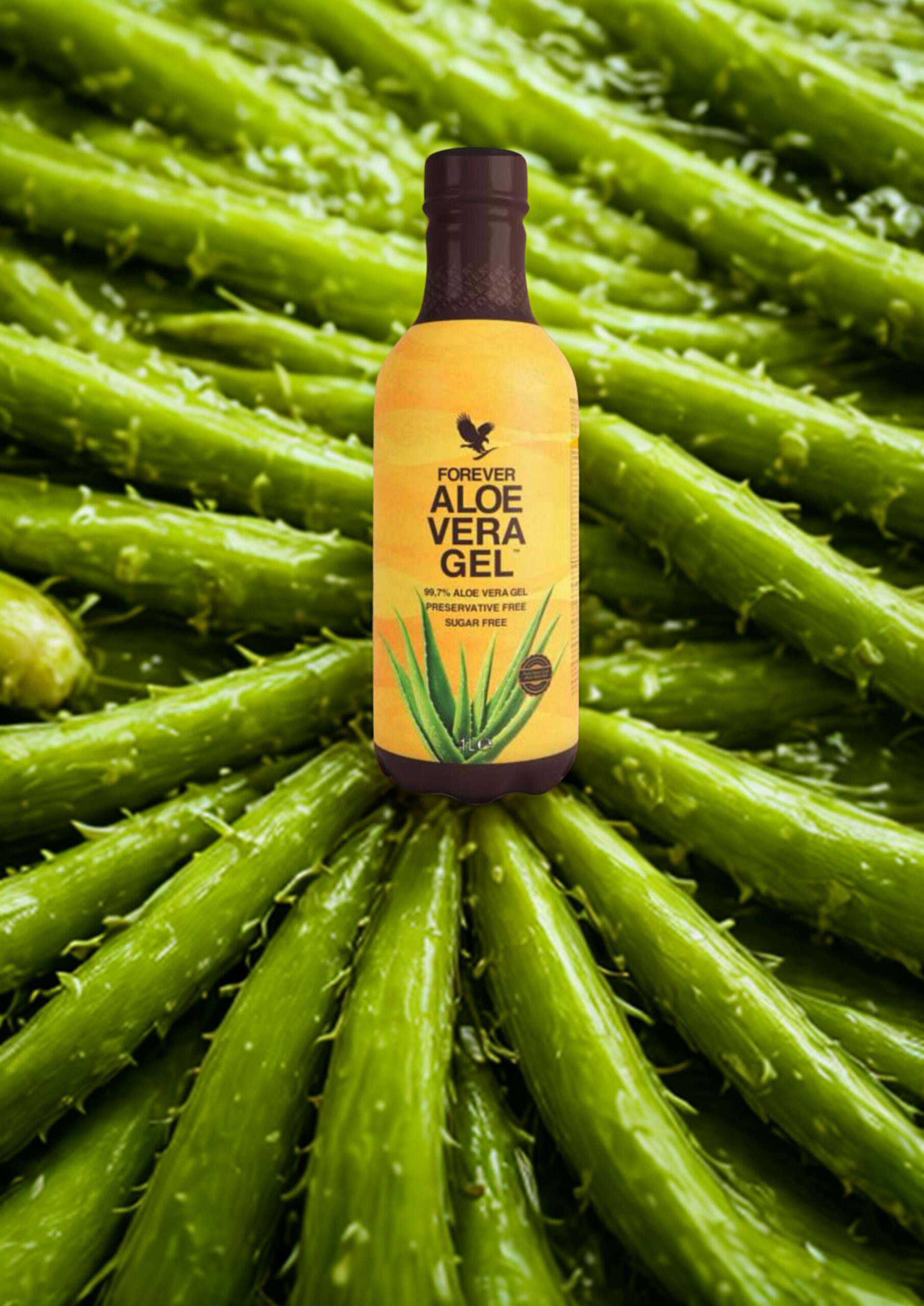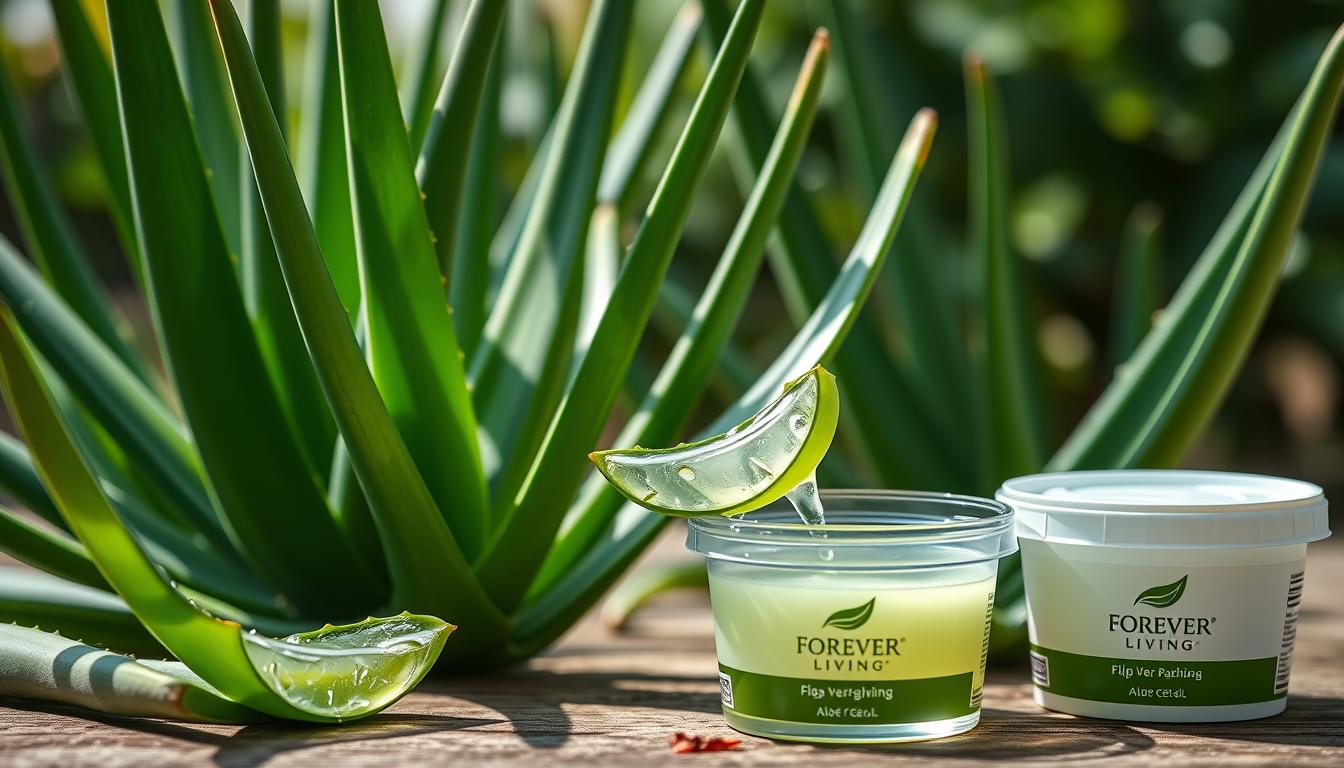Aloe vera has been a staple in natural health remedies for centuries, with its use dating back to ancient civilizations. Rich in antioxidants and antibacterial properties, it has been utilized to treat various health conditions, from skin irritations to digestive issues.
Recent studies have highlighted aloe vera’s potential in supporting digestive health, boosting immune support, and aiding in skin healing. With its versatility and natural healing properties, aloe vera is more than just a sunburn remedy.
The multifaceted advantages of aloe vera make it a valuable addition to a health regimen, offering a natural solution for various health concerns.
- Understanding Aloe Vera: Nature's Healing Plant
- The Science-Backed Benefits of Aloe Vera
- Aloe Vera for Skin Health: Beyond Sunburn Relief
- Digestive Health Benefits of Aloe Vera
- Immune System Support: How Aloe Strengthens Defenses
- Aloe Vera for Diabetes Management
- Oral Health Applications of Aloe Vera
- Aloe Vera Research Studies: What Science Reveals
- Proven Uses of Aloe Vera in Modern Medicine
- How to Use Aloe Vera: Forms and Applications
- Conclusion: Harnessing the Full Potential of Aloe Vera
- FAQ
- What are the primary health benefits of aloe vera?
- How does aloe vera support digestive health?
- Can aloe vera be used for skin conditions like psoriasis and eczema?
- How does aloe vera support immune function?
- Is aloe vera effective in managing diabetes?
- What are the oral health benefits of aloe vera?
- How can aloe vera be used?
- Are there any FDA-approved applications of aloe vera?
- What do research studies reveal about aloe vera's health benefits?
- Understanding Aloe Vera: Nature's Healing Plant
- The Science-Backed Benefits of Aloe Vera
- Aloe Vera for Skin Health: Beyond Sunburn Relief
- Digestive Health Benefits of Aloe Vera
- Immune System Support: How Aloe Strengthens Defenses
- Aloe Vera for Diabetes Management
- Oral Health Applications of Aloe Vera
- Aloe Vera Research Studies: What Science Reveals
- Proven Uses of Aloe Vera in Modern Medicine
- How to Use Aloe Vera: Forms and Applications
- Conclusion: Harnessing the Full Potential of Aloe Vera
- FAQ
- What are the primary health benefits of aloe vera?
- How does aloe vera support digestive health?
- Can aloe vera be used for skin conditions like psoriasis and eczema?
- How does aloe vera support immune function?
- Is aloe vera effective in managing diabetes?
- What are the oral health benefits of aloe vera?
- How can aloe vera be used?
- Are there any FDA-approved applications of aloe vera?
- What do research studies reveal about aloe vera's health benefits?
Key Takeaways
- Aloe vera supports digestive health with its natural anti-inflammatory properties.
- It aids in boosting immune support, helping to protect against illnesses.
- Aloe vera is beneficial for skin healing, promoting healthy skin regeneration.
- Rich in antioxidants, aloe vera helps combat free radicals in the body.
- Its antibacterial properties make it effective against various infections.
Understanding Aloe Vera: Nature's Healing Plant
The aloe vera plant, with its rich history and diverse applications, stands as a testament to nature’s potential for healing. This succulent has been a cornerstone in traditional medicine for centuries, with its use spanning across various cultures and civilizations.
The Historical Use of Aloe Vera Across Civilizations
Aloe vera’s historical significance is profound, with evidence of its use dating back to ancient Egypt, Greece, and China. It was valued not only for its medicinal properties but also for its cosmetic applications. The plant was often referred to as the “plant of immortality” by ancient Egyptians, who used it to treat a variety of ailments, from skin conditions to digestive issues.
The use of aloe vera continued through the ages, with different cultures adopting it for various purposes. In traditional Chinese medicine, aloe vera was used to treat conditions such as constipation and to promote overall well-being. Similarly, in Ayurvedic medicine, it was utilized for its anti-inflammatory properties and to balance the body’s doshas.
Botanical Profile and Active Compounds
Aloe vera’s efficacy can be attributed to its rich composition of bioactive compounds. The gel contained within its leaves is particularly rich in vitamins A, C, and E, as well as minerals like calcium and potassium. Aloin, a compound found in the plant’s latex, is known for its laxative properties, while other compounds like aloe-emodin have been studied for their anti-inflammatory and antimicrobial effects.
The plant’s ability to soothe and heal is largely due to its complex composition, which includes polysaccharides, glycoproteins, and other bioactive molecules. These compounds work synergistically to promote wound healing, reduce inflammation, and enhance skin health.
Understanding the botanical profile of aloe vera and its active compounds is crucial for appreciating its proven uses and the research backing its various applications. As we delve into the science-backed benefits of aloe vera, it becomes clear that its historical use was not merely anecdotal but rooted in its biochemical properties.
The Science-Backed Benefits of Aloe Vera
Research has increasingly shown that aloe vera’s bioactive compounds are responsible for its numerous health benefits. The scientific validation of aloe vera’s traditional uses has been a significant area of study, shedding light on the mechanisms behind its effectiveness.
How Research Validates Traditional Uses
Studies have consistently demonstrated that aloe vera is effective in wound healing, reducing inflammation, and combating oxidative stress. These benefits are largely attributed to its rich composition of bioactive compounds, including vitamins, minerals, and polysaccharides.
The traditional use of aloe vera for skin conditions such as burns, cuts, and abrasions is supported by research showing its ability to enhance wound healing and tissue repair. Clinical trials have further validated its efficacy in reducing healing time and improving tissue strength.
Key Bioactive Compounds and Their Functions
Aloe vera contains a diverse array of bioactive compounds, each contributing to its health benefits. Polysaccharides, such as acemannan, play a crucial role in immune modulation and wound healing. Antioxidants, including vitamins C and E, help protect against oxidative stress and inflammation.
- Polysaccharides: Immune modulation, wound healing
- Antioxidants: Protection against oxidative stress, inflammation reduction
- Vitamins and minerals: Nutritional support, enhancement of overall health
The synergy between these compounds is believed to be responsible for aloe vera’s broad spectrum of benefits, from skin health to digestive wellness. Further research into the specific functions of these compounds will continue to elucidate the full potential of aloe vera.
Aloe Vera for Skin Health: Beyond Sunburn Relief
Aloe vera’s benefits for skin health extend far beyond its well-known sunburn relief properties. This versatile plant has been used for centuries to address various skin concerns, from wound healing to anti-aging. The science-backed benefits of aloe vera for skin are multifaceted, making it a valuable addition to any skincare routine.
Wound Healing and Tissue Regeneration
Aloe vera is renowned for its wound healing properties. Studies have shown that aloe vera gel can enhance the healing process by increasing collagen synthesis, improving tissue strength, and promoting tissue repair. The presence of bioactive compounds like aloin and aloe-emodin contributes to its wound healing effects.
The gel’s anti-inflammatory properties also play a crucial role in reducing inflammation and promoting a conducive environment for healing. This makes aloe vera an effective treatment for minor cuts, burns, and abrasions.
Anti-Aging and Collagen Production
Aloe vera is rich in vitamins A, C, and E, which are known for their antioxidant properties. These vitamins help protect the skin from oxidative stress caused by free radicals, thereby reducing the appearance of fine lines and wrinkles. Moreover, aloe vera’s ability to stimulate collagen production improves skin elasticity, giving the skin a more youthful appearance.
- Boosts Collagen Production: Enhancing skin elasticity and firmness.
- Antioxidant Properties: Protecting the skin from environmental stressors.
- Hydrating Effects: Keeping the skin moisturized and supple.
Treating Skin Conditions: Psoriasis, Eczema, and Acne
Aloe vera has been found to be beneficial in managing various skin conditions. Its anti-inflammatory and soothing properties make it an effective remedy for psoriasis and eczema, reducing redness and irritation. For acne, aloe vera’s antimicrobial properties help in reducing the occurrence of breakouts while soothing the skin.
The science-backed benefits of aloe vera for these skin conditions include:
- Reducing inflammation and soothing irritated skin.
- Exhibiting antimicrobial activity against acne-causing bacteria.
- Enhancing skin hydration and reducing dryness associated with conditions like eczema.
Incorporating aloe vera into your skincare routine can be as simple as applying aloe vera gel directly to the affected areas or using products that contain aloe vera as a key ingredient. With its array of benefits backed by scientific research, aloe vera stands out as a natural, effective solution for various skin health concerns.
Digestive Health Benefits of Aloe Vera
Aloe vera has been used for centuries to soothe digestive issues, and modern science is now validating its effectiveness. The gel of the aloe vera plant contains a wealth of bioactive compounds that can help in managing various digestive disorders.
Aloe Vera for IBS and Inflammatory Bowel Diseases
Irritable Bowel Syndrome (IBS) and Inflammatory Bowel Diseases (IBD) such as Crohn’s disease and ulcerative colitis are characterized by chronic inflammation and discomfort in the gastrointestinal tract. Aloe vera’s anti-inflammatory properties have been shown to potentially alleviate symptoms of these conditions. Research indicates that aloe vera can reduce inflammation in the gut, thereby improving symptoms like abdominal pain and bowel irregularity.
“Aloe vera has been found to be beneficial in reducing the severity of symptoms in patients with IBS and IBD, offering a natural adjunct to conventional treatments,” notes a study published in a gastroenterology journal.
Gut Microbiome Support and Digestive Enzyme Enhancement
A healthy gut microbiome is crucial for overall digestive health, and aloe vera has been found to support this delicate balance. The prebiotic properties of aloe vera help in promoting the growth of beneficial gut bacteria. Moreover, aloe vera is believed to enhance digestive enzyme activity, which aids in the proper breakdown and absorption of nutrients.

Acid Reflux and Ulcer Management
Aloe vera juice is often consumed to alleviate symptoms of acid reflux and to help manage ulcers. Its soothing effect on the mucous membranes can help in reducing the irritation caused by stomach acid. Additionally, aloe vera’s anti-inflammatory properties may aid in healing the mucosal lining of the stomach, potentially reducing the occurrence of ulcers.
A study on aloe vera’s effect on acid reflux found that participants experienced a significant reduction in symptoms, highlighting its potential as a natural remedy for GERD (Gastroesophageal Reflux Disease).
Immune System Support: How Aloe Strengthens Defenses
With its rich composition, aloe vera is recognized for its immune-boosting properties. The plant’s ability to support immune function is attributed to its complex mix of bioactive compounds, which work synergistically to enhance the body’s natural defenses.
Immunomodulatory Properties and Infection Resistance
Aloe vera’s immunomodulatory effects play a crucial role in regulating the immune system. By modulating the immune response, aloe vera helps in fighting off infections more effectively. Studies have shown that its immunomodulatory properties can enhance the body’s resistance to pathogens.
The key to aloe vera’s immune-boosting effects lies in its ability to:
- Stimulate the production of white blood cells, which are vital for fighting infections
- Enhance the activity of macrophages, cells that engulf and digest cellular debris and pathogens
- Modulate cytokine production, which helps in coordinating the immune response
Antioxidant Effects and Free Radical Scavenging
Aloe vera is rich in antioxidants, which are crucial for protecting the body against oxidative stress caused by free radicals. The antioxidant effects of aloe vera contribute to its immune-supporting properties by reducing oxidative damage and promoting overall health.
The antioxidant properties of aloe vera help in:
- Neutralizing free radicals, thereby reducing oxidative stress
- Protecting immune cells from damage, ensuring a more effective immune response
- Supporting overall health by mitigating the effects of oxidative stress on the body
By incorporating aloe vera into one’s health regimen, individuals can potentially strengthen their immune defenses and enhance their overall well-being.
Aloe Vera for Diabetes Management
Aloe vera, a plant known for its healing properties, may also play a role in diabetes management. Emerging research suggests that aloe vera could be a valuable adjunct in the management of diabetes, thanks to its potential effects on blood sugar regulation and insulin sensitivity.

Blood Sugar Regulation Mechanisms
The potential of aloe vera to help regulate blood sugar levels is attributed to its bioactive compounds. Research indicates that aloe vera extracts may influence glucose metabolism, thereby aiding in the control of blood sugar levels. This is crucial for individuals with diabetes, as maintaining stable blood glucose levels is key to managing the condition effectively.
Studies have shown that aloe vera can reduce fasting blood glucose and improve glycemic control. The mechanisms behind this effect are thought to involve the enhancement of insulin secretion and the protection of pancreatic beta-cells.
Insulin Sensitivity Improvement
Improving insulin sensitivity is another way aloe vera may help in diabetes management. Aloe vera’s anti-inflammatory properties may contribute to enhanced insulin sensitivity by reducing inflammation, which is known to play a role in insulin resistance.
By potentially improving insulin sensitivity, aloe vera could help reduce the risk of complications associated with diabetes. This makes it a promising area of research for developing complementary therapies for diabetes management.
In conclusion, the available evidence suggests that aloe vera may offer benefits for diabetes management, particularly in terms of blood sugar regulation and insulin sensitivity. However, it is essential to consult with healthcare professionals before using aloe vera as a complementary therapy for diabetes.
Oral Health Applications of Aloe Vera
Aloe vera’s medicinal properties extend to oral health, offering promising solutions. The use of aloe vera in oral health applications has been backed by research, showing its effectiveness in various areas.
Aloe vera is known for its anti-inflammatory and antimicrobial properties, which are beneficial in maintaining oral health. These properties help in reducing plaque, preventing gingivitis, and treating other oral health issues.
Gum Disease Prevention and Treatment
Gum disease, or periodontal disease, is a significant oral health concern. Aloe vera mouthwash has been studied for its potential in preventing and treating gum disease. Research indicates that aloe vera can reduce gingivitis and improve gum health by reducing inflammation and preventing the growth of harmful bacteria.
A study published in the Journal of Oral Science found that aloe vera mouthwash significantly reduced gingivitis and plaque in patients with chronic gingivitis. Such findings suggest that aloe vera could be a valuable adjunct in periodontal therapy.
Mouth Ulcer Healing and Pain Relief
Mouth ulcers, also known as canker sores, can be painful and uncomfortable. Aloe vera gel has been used to heal mouth ulcers due to its soothing and anti-inflammatory properties. Applying aloe vera gel to mouth ulcers can help in reducing pain and accelerating the healing process.
Aloe vera’s effectiveness in healing mouth ulcers is attributed to its ability to enhance wound healing, reduce inflammation, and provide a protective barrier over the ulcer, thereby reducing discomfort and promoting recovery.
In conclusion, aloe vera presents several benefits for oral health, including the prevention and treatment of gum disease and the healing of mouth ulcers. Its natural anti-inflammatory and antimicrobial properties make it a valuable natural remedy for various oral health issues.
Aloe Vera Research Studies: What Science Reveals
Through rigorous scientific investigation, the health benefits and potential uses of aloe vera have been significantly elucidated.
Aloe vera has been the subject of numerous research studies aimed at validating its traditional uses and exploring new applications. These studies have provided a wealth of information on its bioactive compounds and their effects on human health.
Landmark Clinical Trials and Their Findings
Several landmark clinical trials have investigated the efficacy of aloe vera in various health contexts. For instance, a study published in the Journal of Ethnopharmacology found that aloe vera gel significantly accelerated wound healing in patients with chronic wounds.
Another significant study examined the effects of aloe vera on patients with irritable bowel syndrome (IBS). The results showed that aloe vera juice reduced symptoms of IBS, including abdominal pain and bowel irregularity.
| Condition | Aloe Vera Application | Outcome |
|---|---|---|
| Wound Healing | Topical Gel | Accelerated Healing |
| IBS | Oral Juice | Reduced Symptoms |
| Skin Conditions | Topical Cream | Improved Skin Health |
Ongoing Research and Future Directions
Ongoing research continues to explore the potential applications of aloe vera. Current studies are investigating its anti-inflammatory properties, its role in managing diabetes, and its potential anti-cancer effects.
Future directions for aloe vera research include exploring its use in regenerative medicine and its potential to enhance immune function. As research progresses, it is likely that new applications for aloe vera will emerge, further expanding its role in health and wellness.
Proven Uses of Aloe Vera in Modern Medicine
Aloe vera has emerged as a versatile therapeutic agent in modern medicine, backed by a growing body of scientific evidence. Its integration into various medical treatments and healthcare protocols is a testament to its multifaceted benefits.
FDA-Approved Applications and Medical Treatments
Aloe vera’s gel and latex have been utilized in several FDA-approved applications. Notably, its use in wound care has been recognized for enhancing healing processes. Aloe vera gel is rich in vitamins A, C, and E, as well as minerals and amino acids, which contribute to its therapeutic properties.
“Aloe vera has been shown to accelerate wound healing by enhancing collagen synthesis and improving tissue strength.”
A review of clinical trials and studies has highlighted aloe vera’s efficacy in treating various skin conditions, including burns, psoriasis, and eczema. Its anti-inflammatory and antimicrobial properties make it an effective agent for managing these conditions.
| Condition | Aloe Vera’s Benefits | Key Components |
|---|---|---|
| Wound Healing | Accelerates healing, improves tissue strength | Vitamins A, C, E, minerals, amino acids |
| Skin Conditions (Psoriasis, Eczema) | Reduces inflammation, antimicrobial effects | Anti-inflammatory compounds, antimicrobial agents |
Integration into Conventional Healthcare Protocols
The incorporation of aloe vera into conventional healthcare is becoming increasingly evident. Healthcare providers are now more open to recommending aloe vera-based products for various health issues, from digestive problems to skin care.
As research continues to validate the benefits of aloe vera, its role in modern medicine is expected to expand. The science-backed benefits of aloe vera make it a valuable addition to both traditional and contemporary healthcare practices.
How to Use Aloe Vera: Forms and Applications
From topical treatments to internal consumption, aloe vera offers various methods for harnessing its benefits. Aloe vera can be used in multiple forms, catering to different needs and preferences.
Topical Applications: Gels, Creams, and Fresh Plant
Aloe vera gel is widely used for its soothing and moisturizing properties. It can be applied directly to the skin to relieve sunburn, minor cuts, and irritations. Aloe vera creams, often enriched with other nourishing ingredients, provide longer-lasting hydration and are suitable for daily skincare routines.
Using the fresh aloe vera plant is another effective way to benefit from its topical applications. By slicing open the leaf, you can extract the gel directly and apply it to the skin. This method ensures the purity and potency of the aloe vera.
Internal Use: Juices, Supplements, and Precautions
Aloe vera juice is consumed for its digestive benefits, potentially alleviating symptoms of irritable bowel syndrome (IBS) and supporting gut health. When choosing an aloe vera juice, it’s crucial to select a product that is specifically labeled as safe for internal consumption.
Aloe vera supplements offer another option for internal use, available in capsule or powder form. These can be particularly useful for those who find the taste of aloe vera juice unpalatable. However, it’s essential to follow the recommended dosages and consult with a healthcare professional before starting any supplement regimen.
When using aloe vera internally, it’s vital to be aware of potential side effects and interactions. Some individuals may experience gastrointestinal issues, and aloe vera can interact with certain medications.
| Form | Application | Benefits |
|---|---|---|
| Aloe Vera Gel | Topical | Soothes sunburn, moisturizes skin |
| Aloe Vera Cream | Topical | Hydrates skin, suitable for daily use |
| Fresh Aloe Vera | Topical | Pure and potent, direct application |
| Aloe Vera Juice | Internal | Supports digestive health, relieves IBS symptoms |
| Aloe Vera Supplements | Internal | Convenient, supports gut health |
Conclusion: Harnessing the Full Potential of Aloe Vera
Aloe vera has emerged as a multifaceted natural remedy, offering a wide range of health benefits backed by scientific research. From soothing skin irritations and promoting digestive health to supporting immune function, the science-backed benefits of aloe vera are vast and varied.
The aloe vera health benefits extend beyond topical applications, with internal uses showing promise in managing conditions like diabetes and supporting oral health. As research continues to uncover the full potential of this ancient plant, its integration into modern healthcare protocols is becoming increasingly evident.
By understanding the properties and uses of aloe vera, individuals can harness its full potential to enhance overall well-being. Whether used topically or internally, aloe vera stands as a testament to the power of natural remedies in promoting health and preventing disease.
FAQ
What are the primary health benefits of aloe vera?
Aloe vera offers numerous health benefits, including digestive health support, immune system enhancement, skin healing, and anti-aging properties, backed by scientific research and traditional use.
How does aloe vera support digestive health?
Aloe vera has been shown to alleviate symptoms of IBS, support the gut microbiome, and aid in managing acid reflux and ulcers, thanks to its anti-inflammatory and soothing properties.
Can aloe vera be used for skin conditions like psoriasis and eczema?
Yes, aloe vera has been found to be beneficial in treating various skin conditions, including psoriasis, eczema, and acne, due to its anti-inflammatory, antimicrobial, and wound-healing properties.
How does aloe vera support immune function?
Aloe vera’s immunomodulatory properties help regulate the immune system, enhancing infection resistance, and its antioxidant effects contribute to overall immune health.
Is aloe vera effective in managing diabetes?
Research suggests that aloe vera may help regulate blood sugar levels and improve insulin sensitivity, although more studies are needed to confirm its efficacy in diabetes management.
What are the oral health benefits of aloe vera?
Aloe vera has been shown to prevent gum disease, treat mouth ulcers, and provide pain relief due to its antimicrobial and anti-inflammatory properties.
How can aloe vera be used?
Aloe vera can be used topically in the form of gels and creams for skin health, and internally as juices and supplements for digestive and overall health, but precautions should be taken to ensure safe use.
Are there any FDA-approved applications of aloe vera?
Yes, aloe vera has FDA-approved applications, and it is being integrated into conventional healthcare protocols for various health benefits, highlighting its growing recognition as a valuable therapeutic agent.
What do research studies reveal about aloe vera’s health benefits?
Landmark clinical trials and ongoing research validate the traditional uses of aloe vera, supporting its benefits for skin, digestive, and immune health, among other areas.







